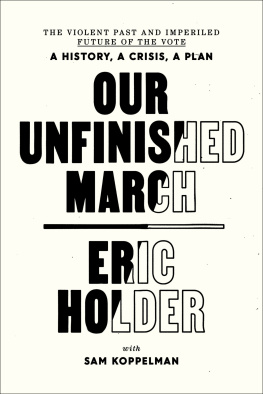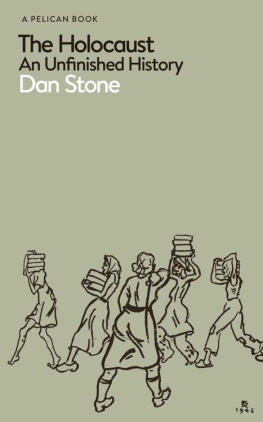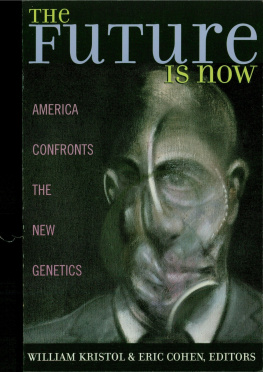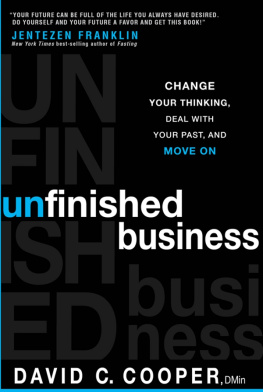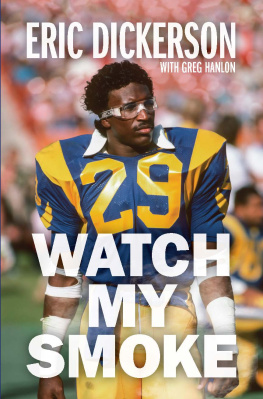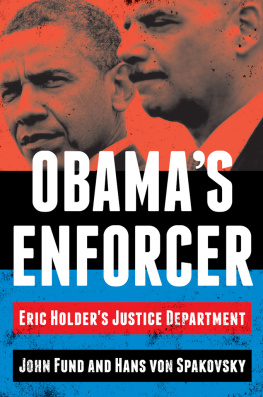Eric Holder - Our Unfinished March: The Violent Past and Imperiled Future of the Vote-A History, a Crisis, a Plan
Here you can read online Eric Holder - Our Unfinished March: The Violent Past and Imperiled Future of the Vote-A History, a Crisis, a Plan full text of the book (entire story) in english for free. Download pdf and epub, get meaning, cover and reviews about this ebook. year: 2022, publisher: Random House, genre: Politics. Description of the work, (preface) as well as reviews are available. Best literature library LitArk.com created for fans of good reading and offers a wide selection of genres:
Romance novel
Science fiction
Adventure
Detective
Science
History
Home and family
Prose
Art
Politics
Computer
Non-fiction
Religion
Business
Children
Humor
Choose a favorite category and find really read worthwhile books. Enjoy immersion in the world of imagination, feel the emotions of the characters or learn something new for yourself, make an fascinating discovery.
- Book:Our Unfinished March: The Violent Past and Imperiled Future of the Vote-A History, a Crisis, a Plan
- Author:
- Publisher:Random House
- Genre:
- Year:2022
- Rating:4 / 5
- Favourites:Add to favourites
- Your mark:
- 80
- 1
- 2
- 3
- 4
- 5
Our Unfinished March: The Violent Past and Imperiled Future of the Vote-A History, a Crisis, a Plan: summary, description and annotation
We offer to read an annotation, description, summary or preface (depends on what the author of the book "Our Unfinished March: The Violent Past and Imperiled Future of the Vote-A History, a Crisis, a Plan" wrote himself). If you haven't found the necessary information about the book — write in the comments, we will try to find it.
Eric Holder: author's other books
Who wrote Our Unfinished March: The Violent Past and Imperiled Future of the Vote-A History, a Crisis, a Plan? Find out the surname, the name of the author of the book and a list of all author's works by series.
Our Unfinished March: The Violent Past and Imperiled Future of the Vote-A History, a Crisis, a Plan — read online for free the complete book (whole text) full work
Below is the text of the book, divided by pages. System saving the place of the last page read, allows you to conveniently read the book "Our Unfinished March: The Violent Past and Imperiled Future of the Vote-A History, a Crisis, a Plan" online for free, without having to search again every time where you left off. Put a bookmark, and you can go to the page where you finished reading at any time.
Font size:
Interval:
Bookmark:
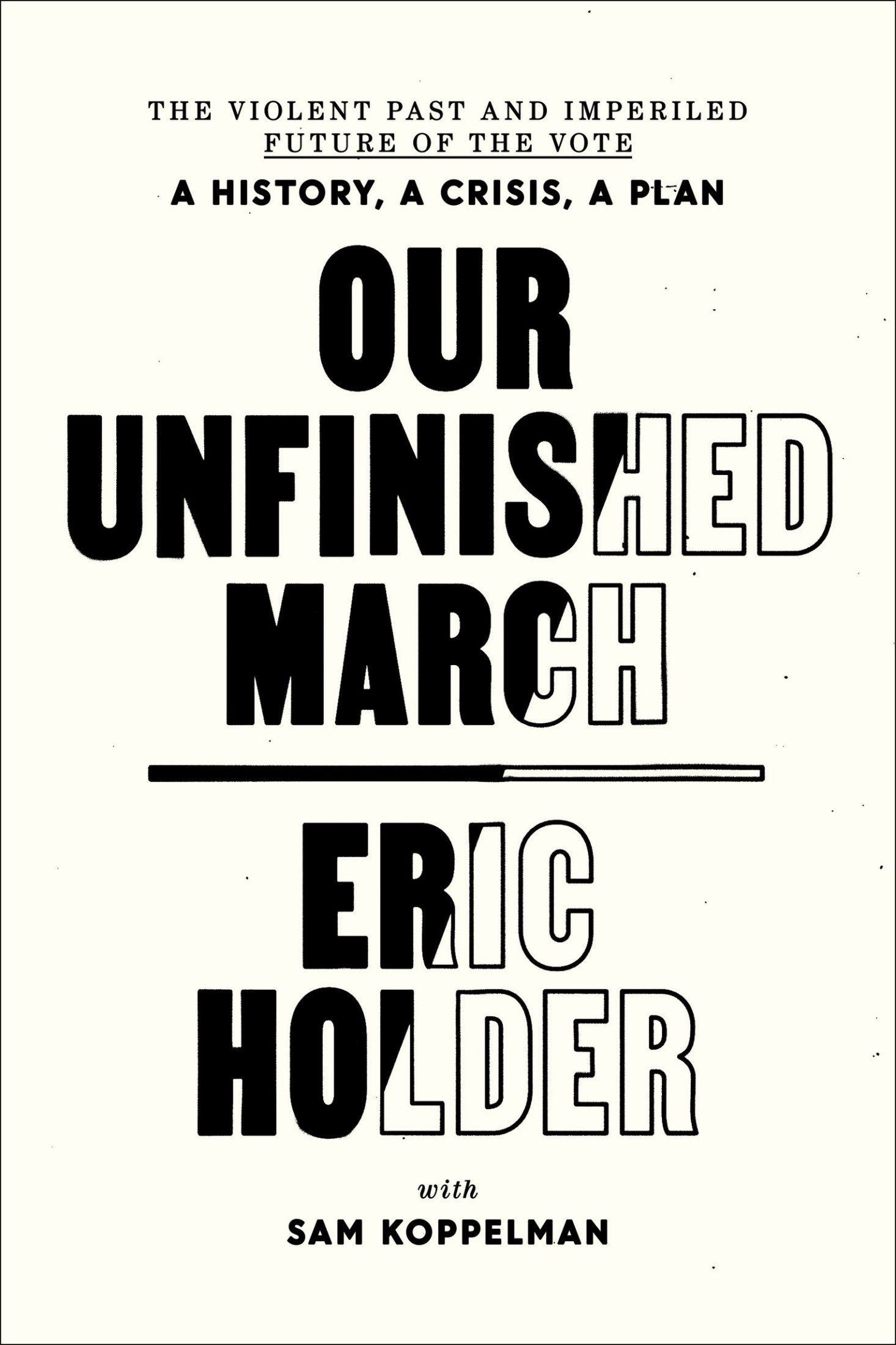
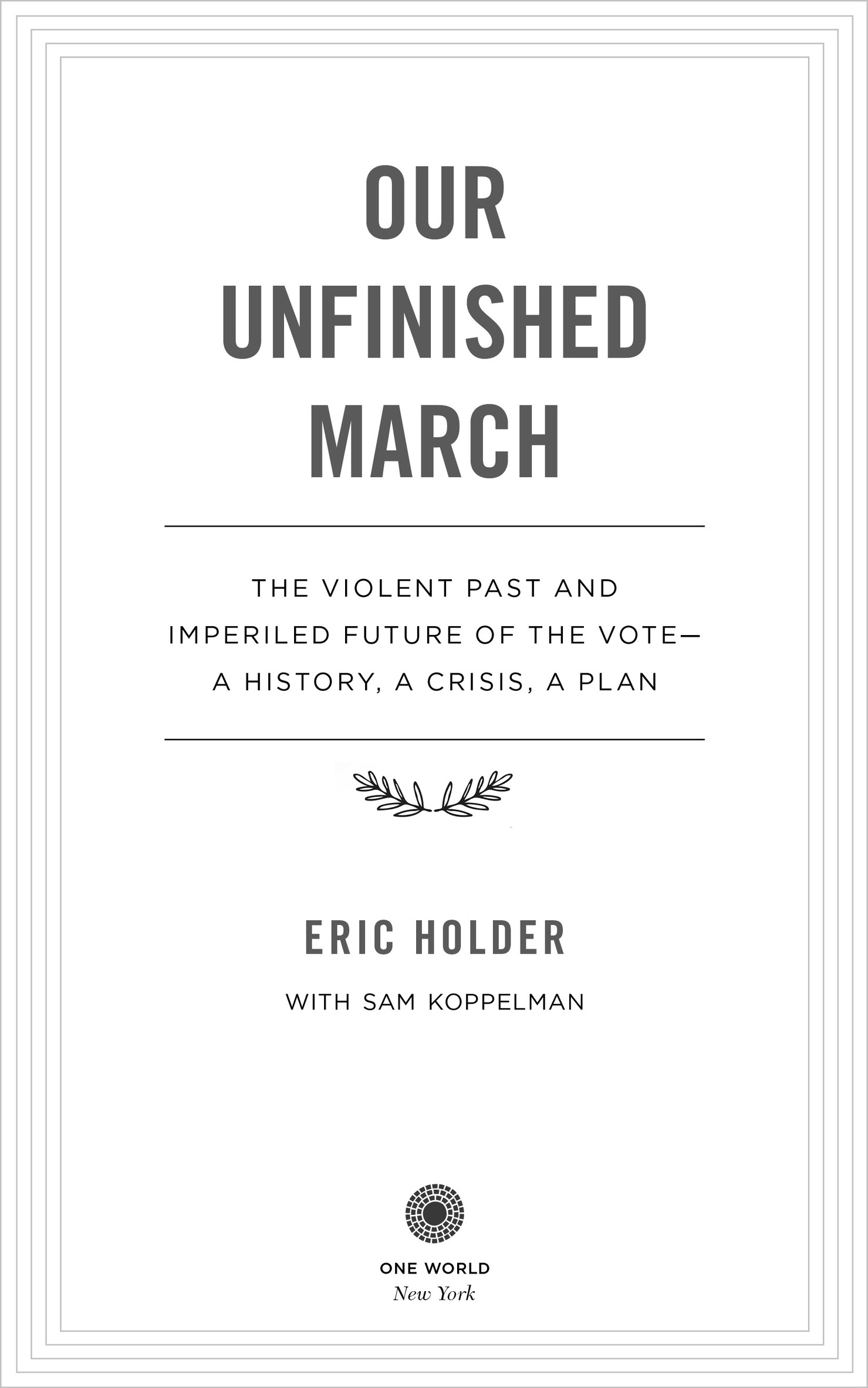
Copyright 2022 by Eric H. Holder, Jr.
All rights reserved.
Published in the United States by One World, an imprint of Random House, a division of Penguin Random House LLC, New York.
One World and colophon are registered trademarks of Penguin Random House LLC.
Hardback ISBN9780593445747
Ebook ISBN9780593445754
oneworldlit.com
randomhousebooks.com
Cover design: Michael Houtz
Art direction: Greg Mollica
ep_prh_6.0_139899382_c0_r0
The vote is the most powerful nonviolent change agent you have in a democratic society. You must use it because it is not guaranteed. You can lose it.
John Lewis
This right to vote is the basic right without which all others are meaningless.
President Lyndon B. Johnson
For most of our countrys history, a man who looked like me might not have wanted to leave the north for Selma, Alabamawhere the Confederate army manufactured its shot and shell, cartridges and cannons; where separate water fountains and lunch counters, public schools and public pools were anything but equal; where lynchings were not prosecuted by the government but perpetrated by it; where marches for justice and cries for freedom were answered with poll taxes and literacy tests, billy clubs and batonsbut on March 7, 2015, I wouldnt have wanted to be anywhere else.
Because, on that day, the history of Selma wasnt a stain on Americas past. It was a reminder that a better future is always within reach, as long as youre willing to fight for it.
After all, just fifty years had passed since the march on the Edmund Pettus Bridge, and I was coming to Selma as the first African American attorney general, alongside Barack Obama, the first African American president of the United States. We were two of the forty thousand Americans who descended on the town to honor the anniversary, tripling its population overnight.
The mood was celebratorylike a church service and a block party all in one. By seven-thirty a.m. , drivers had abandoned their vehicles in the middle of the street, realizing there was too much traffic to get anywhere. But no one was complaining. Because everyone knew we were in Selma to witness something special.
So much of our history and our mythology is about dreamers who never have a chance to harvest the fruits of their labor. Martin in Memphis. Moses on the Mount. But in Selma that day, heroes who had marched fifty years earlierfoot soldiers of the civil rights movement like Diane Nash, Amelia Boynton, and Bernard LaFayettebore witness to a new America, an America they had built with their steps and sweat, their hands and hearts, an America where they didnt only have the right to vote, but had exercised it to elect people who looked like them to the highest offices of power in the world. And that was a big deal, even as the presence of the relatives of Eric Garner, a forty-three-year-old man whom a police officer had recently choked to death as he pleaded, I cant breathe, stood as a testament to how much more work we had left to do.
In his remarks introducing President Obama, Congressman John Lewis declared: If someone had told me when we were crossing this bridge that one day I would be back here introducing the first African American president, I would have said, Youre crazy, youre out of your mind, you dont know what youre talking about.
And who could blame him?
Only half a century earlier, on the same bridge where he was now standing next to our first Black president, the then twenty-five-year-old suffragist had been beaten close to death. I was fourteen at the time, and I remember watching reports of the violence in Selma on my familys basement television set in Queensdiscussing with my parents how Americans could allow such cruelty to take place in our country. They didnt have an answer. No one did. But they used that moment as an opportunity to tell me never to take my right to vote for granted, because in America, for people who looked like us, it wasnt guaranteed. And I remember noticing, at a young age, that my parents walked the walk. Any time there was an election, whether it was a race for president or school board, they would show up to the polls.
Those were the lessons that shaped me as a kidand they were the ones on my mind leading up to the fiftieth anniversary of the Selma march. By that point in my tenure as attorney general, more than half a decade after I had taken my oath of office, I was ready to step down. The prior year, Id had to speak to President Obama three times about my desire to leave the Department of Justice before he agreed to appoint a replacement. And months after he finally nominated one, Congress was still stalling on confirming her. Which is to say: I was in serious need of a vacation, a long vacation, with good books and smooth Bajan rum.
But as March 7 drew nearer, I secretly started to harbor a hope that Republicans in Congress would obstruct for just a little longeras they reflexively didso I could remain in office on this sacred day. Because I had a message I wanted to share, as the first Black attorney general of the United States, about how far we had come and how far we still had left to march.
So when I arrived at the historic Brown Chapel AME Church that day to deliver my remarks, I knew exactly what story I would tell about what had taken place fifty years earlier. Its a story about believing that, despite the evil in the world, good will prevail, but only if you refuse to relent. A story about resilience in the face of racism; courage in the face of cowardice; bravery in the face of brutality. A story about America.
Its a story you could open with the agony of the Middle Passage, or with the tortured writing of the Constitution, or with the violent end of Reconstruction, and in Selma, I alluded to all that. But for the purposes of this introduction, I think it makes the most sense to start with what went down in 1962when a young man named Jimmie Lee Jackson accompanied his eighty-year-old grandfather, Cager Lee, to the town registrars office in Marion, Alabama.
For Jimmie, growing up without a father, Cager was the defining male presence in his lifeand as soon as he was old enough to drive, he chauffeured his grandfather everywhere. To town. To the store. To church. By the time Jimmie entered his twenties, he and Cager were more than family; they were friends. So when, on that day in 1962, Jimmie saw his grandfathers face sink as his attempt to register to vote was rejected, for no reason other than racism, he felt a duty to join the civil rights movement himself.
After all, he knew Cager wasnt an exception. In Marion, where Jimmie was raised, African Americans made up two of every three citizens but just one of every fifty registered voters. That meant that functionally, almost a hundred years after the ratification of the Fifteenth Amendment, Alabama still hadnt granted Black Americans the right to vote.
So Jimmie began attending meetings, joining demonstrations, and preaching about the importance of ending segregation. He was a leader in his communitybecoming, at twenty-five years old, the youngest deacon in the history of his church. And in 1965, he was in the middle of the action as his hometown of Marion, less than thirty miles outside Selma, became one of the epicenters of the civil rights movement.
Marion is where hundreds of Black studentschildrenhad recently been dragged to jail by the busload for protesting segregation in their schools. Its where police had arrested civil rights hero James Orange for trying to register young people like them to vote. And on the night of February 18, its where the Ku Klux Klan had made plans to seek revenge on Orange by lynching him.
Font size:
Interval:
Bookmark:
Similar books «Our Unfinished March: The Violent Past and Imperiled Future of the Vote-A History, a Crisis, a Plan»
Look at similar books to Our Unfinished March: The Violent Past and Imperiled Future of the Vote-A History, a Crisis, a Plan. We have selected literature similar in name and meaning in the hope of providing readers with more options to find new, interesting, not yet read works.
Discussion, reviews of the book Our Unfinished March: The Violent Past and Imperiled Future of the Vote-A History, a Crisis, a Plan and just readers' own opinions. Leave your comments, write what you think about the work, its meaning or the main characters. Specify what exactly you liked and what you didn't like, and why you think so.

